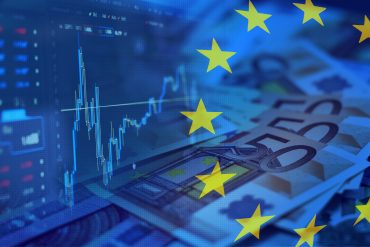

European fund managers shift billions from US markets as regional economic prospects brighten and recession fears fade
Three Key Facts
- European equity optimism reaches four-year high with a net 34% of investors overweight in European stocks, while 75% expect market gains over the next year according to BofA’s latest fund manager survey.
- Global recession fears ease significantly as only 46% of participants now anticipate weakening global economy over the next year, down from 59% last month and a record 82% in April.
- US equity allocations hit two-year low with a net 36% of investors underweight American stocks, marking the most underweight stance since May 2023 amid rotation into European markets.
Introduction
European equity markets are experiencing their strongest investor sentiment in nearly four years, as fund managers increasingly favor regional stocks over global alternatives. According to Investing.com, BofA’s latest European Fund Manager Survey reveals a dramatic shift in investment positioning, with investors rotating capital from US equities into European markets.
The survey of 222 fund managers controlling $587 billion in assets shows growing confidence in European economic prospects while maintaining cautious views on global growth. This sentiment marks a significant departure from the pessimism that dominated markets earlier this year.
Key Developments
The survey reveals a notable improvement in global economic expectations. Only 46% of participants now anticipate a weakening global economy over the next year, representing a sharp decline from 59% last month and a record 82% in April during peak trade war concerns.
European growth expectations show particular strength, with a net 29% of respondents forecasting stronger regional performance in the coming year. German fiscal stimulus emerges as a key catalyst, with 79% of European investors viewing it as the primary driver for enhanced continental growth.
The “soft landing” scenario has become the dominant expectation among fund managers. Sixty-six percent view this as the most likely economic outcome, while those predicting a “no landing” scenario more than doubled from 7% to 19%. Only 11% forecast a hard landing for the global economy.
Market Impact
European equity allocations have surged to their highest levels since 2021, with a net 34% of investors overweight in regional stocks. This positioning reflects growing confidence in European market performance relative to global alternatives.
US equity allocations present a stark contrast, falling to their most underweight position since May 2023. The net 36% underweight stance in American stocks signals a significant geographical reallocation of investment capital.
Sector rotation within European markets favors financial services, with banks representing the top overweight position at 39%. Utilities and insurance follow as preferred sectors, while automotive, chemicals, and retail face the heaviest underweighting from institutional investors.
Strategic Insights
The investment rotation reflects broader structural shifts in global market dynamics. European markets benefit from expectations of monetary easing, with 87% of respondents anticipating lower short-term interest rates and 70% expecting reduced inflation specifically in Europe.
Technology spending provides additional tailwinds for European growth. AI-related software spending in major EU economies grows at twice the pace of the overall software market, despite only 11% of EU enterprises currently using AI technology.
Currency dynamics support the European investment thesis. Sixty-one percent of investors expect US dollar depreciation over the coming year, representing the highest level of dollar bearishness since May 2006. This currency view reinforces the attractiveness of European asset allocations.
Expert Opinions and Data
BofA strategists led by Sebastian Raedler identify trade policy as the primary risk factor. “A trade war that triggers a global recession is considered the biggest tail-risk by around half of the respondents,” they note, with 80% of fund managers citing this as the biggest market tail risk.
The earnings outlook for European companies shows marked improvement. Sixty-one percent of survey participants predict rising 12-month forward earnings per share in Europe, up substantially from 38% last month. This earnings optimism underpins the positive equity market sentiment.
Cash allocation patterns reveal increased risk appetite among European fund managers. Cash levels declined to 3.9% from 4.1% last month, indicating greater willingness to deploy capital into equity markets despite global economic uncertainties.
Conclusion
European equity markets enjoy their strongest institutional support in nearly four years, driven by improved regional growth prospects and expectations of supportive monetary policy. The significant rotation from US to European stocks reflects changing perceptions of relative economic performance and currency dynamics.
Fund managers maintain cautious optimism about global economic conditions while expressing clear preference for European investment opportunities. This positioning represents a fundamental shift from the widespread pessimism that characterized markets during the peak of trade war concerns earlier this year.








